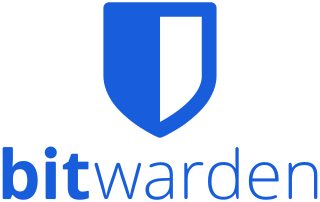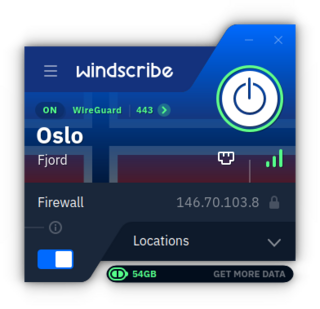Gecko is a browser engine developed by Mozilla. It is used in the Firefox browser, the Thunderbird email client, and many other projects.

Mozilla Firefox, or simply Firefox, is a free and open-source web browser developed by the Mozilla Foundation and its subsidiary, the Mozilla Corporation. It uses the Gecko rendering engine to display web pages, which implements current and anticipated web standards. Firefox is available for Windows 10 or later versions, macOS, and Linux. Its unofficial ports are available for various Unix and Unix-like operating systems, including FreeBSD, OpenBSD, NetBSD, illumos, and Solaris Unix. It is also available for Android and iOS. However, as with all other iOS web browsers, the iOS version uses the WebKit layout engine instead of Gecko due to platform requirements. An optimized version is also available on the Amazon Fire TV as one of the two main browsers available with Amazon's Silk Browser.

Mozilla Thunderbird is free and open-source email client software which also functions as a full personal information manager with a calendar and contactbook, as well as an RSS feed reader, chat client (IRC/XMPP/Matrix), and news client. Available cross-platform, it is operated by the Mozilla Foundation's subsidiary MZLA Technologies Corporation. Thunderbird is an independent, community-driven project that is managed and overseen by the Thunderbird Council, which is elected by the Thunderbird Community. The project strategy was originally modeled after that of Mozilla's Firefox Web browser and is an interface built on top of that Web browser.

Firefox for Android is a web browser developed by Mozilla for Android smartphones and tablet computers. As with its desktop version, it uses the Gecko layout engine, and supports features such as synchronization with Firefox Sync, and add-ons.

Opera is a multi-platform web browser developed by its namesake company Opera. The current edition of the browser is based on Chromium. Opera is available on Windows, macOS, Linux, Android, and iOS. There are also mobile versions called Opera Mobile and Opera Mini. Opera users also have access to Opera News, a news app based on an AI platform.

Google Chrome is a web browser developed by Google. It was first released in 2008 for Microsoft Windows, built with free software components from Apple WebKit and Mozilla Firefox. Versions were later released for Linux, macOS, iOS, and also for Android, where it is the default browser. The browser is also the main component of ChromeOS, where it serves as the platform for web applications.

Firefox OS is a discontinued open-source operating system – made for smartphones, tablet computers, smart TVs, and dongles designed by Mozilla and external contributors. It is based on the rendering engine of the Firefox web browser, Gecko, and on the Linux kernel. It was first commercially released in 2014.
Firefox was created by Dave Hyatt and Blake Ross as an experimental branch of the Mozilla browser, first released as Firefox 1.0 on November 9, 2004. Starting with version 5.0, a rapid release cycle was put into effect, resulting in a new major version release every six weeks. This was gradually accelerated further in late 2019, so that new major releases occur on four-week cycles starting in 2020.
Mozilla is a free software community founded in 1998 by members of Netscape. The Mozilla community uses, develops, publishes and supports Mozilla products, thereby promoting exclusively free software and open standards, with only minor exceptions. The community is supported institutionally by the non-profit Mozilla Foundation and its tax-paying subsidiary, the Mozilla Corporation.

Proton Mail is a Swiss end-to-end encrypted email service founded in 2013 headquartered in Plan-les-Ouates, Switzerland. It uses client-side encryption to protect email content and user data before they are sent to Proton Mail servers, unlike other common email providers such as Gmail and Outlook.com. The service can be accessed through a webmail client, the Tor network, Windows, macOS and Linux (beta) desktop apps and iOS and Android apps.

Mullvad is a commercial VPN service based in Sweden. Launched in March 2009, Mullvad operates using the WireGuard and OpenVPN protocols. It also supports Shadowsocks as a bridge protocol for censorship circumvention. Mullvad's VPN client software is released under the GPLv3, a free and open-source software license.
ExpressVPN is a VPN service which offers privacy and security software that encrypts users' web traffic and masks their IP addresses. It is offered by a Hong Kong-based company registered in the British Virgin Islands as Express Technologies Ltd.
NordVPN is a Lithuanian VPN service provided by Nordsec Ltd with applications for Microsoft Windows, macOS, Linux, Android, iOS, Android TV, and tvOS. Manual setup is available for wireless routers, NAS devices, and other platforms.
DNS over HTTPS (DoH) is a protocol for performing remote Domain Name System (DNS) resolution via the HTTPS protocol. A goal of the method is to increase user privacy and security by preventing eavesdropping and manipulation of DNS data by man-in-the-middle attacks by using the HTTPS protocol to encrypt the data between the DoH client and the DoH-based DNS resolver. By March 2018, Google and the Mozilla Foundation had started testing versions of DNS over HTTPS. In February 2020, Firefox switched to DNS over HTTPS by default for users in the United States. In May 2020, Chrome switched to DNS over HTTPS by default.

Bitwarden is a freemium open-source password management service that stores sensitive information, such as website credentials, in an encrypted vault. The platform offers a variety of client applications, including a web interface, desktop applications, browser extensions, mobile apps, and a command-line interface. Bitwarden offers a free US or European cloud-hosted service as well as the ability to self-host.
KeepSolid VPN Unlimited is a personal virtual private network software product available for iOS, macOS, Android, Windows, and Linux.
Firefox Lockwise is a deprecated password manager for the Firefox web browser, as well as the mobile operating systems iOS and Android. On desktop, Lockwise was simply part of Firefox, whereas on iOS and Android it was available as a standalone app.
NordPass is a proprietary password manager launched in 2019. It is meant to help its users to organise their passwords and secure notes, keeping them in a single encrypted password vault. This service comes in both free and premium versions, though the free version lacks much of the paid functionality like multi-device login. NordPass was developed by the same cybersecurity team that created NordVPN, a VPN service provider.

Windscribe is a commercial, cross-platform virtual private network (VPN) service provider that is based in Canada, but operates internationally.






